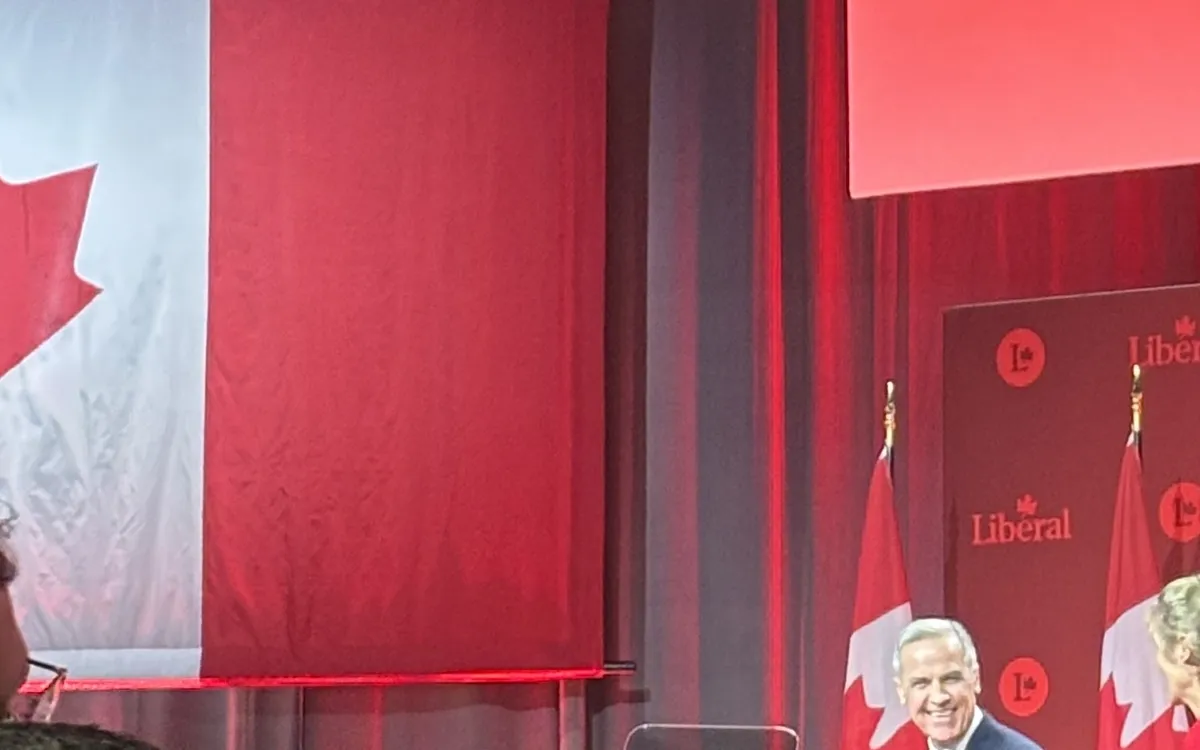
On Sunday afternoon, Mark J. Carney, a distinguished graduate of Harvard College, emerged victorious in a competitive leadership race to become the 24th Prime Minister of Canada and the new leader of the Canadian Liberal Party. Carney triumphed over fellow Harvard alum Chrystia A. Freeland and two other candidates, securing a clear mandate from party members.
This election took place following the announcement by Prime Minister Justin Trudeau in January regarding his decision to retire from leadership of the Liberal Party. Carney, who relinquished his position on Harvard’s second-highest governing board on the same day, is slated to be sworn into office within the week. Trudeau expressed the intention to discuss the transition process with Carney before finalizing the changeover date.
In a remarkable show of support, Carney garnered 131,674 votes, representing an overwhelming 85.9 percent of all votes cast in the leadership election. Freeland, who followed in second place, received 11,134 votes. Carney had been the frontrunner for the Liberal Party leadership since he officially entered the race in early January.
During his acceptance speech, Carney highlighted the ongoing trade tensions with the United States, particularly addressing President Donald Trump's recent imposition of a 25 percent tariff on Canadian imports. Although Trump announced a temporary pause on the U.S. tariffs, Carney affirmed that Canada would maintain its retaliatory tariffs until mutual respect is established. “My government will keep the tariffs on until the Americans show us respect,” Carney stated, emphasizing the need to utilize tariff revenue to safeguard Canadian workers.
Carney further condemned Trump's threats regarding the potential annexation of Canada, asserting that such actions would “destroy our way of life.” He firmly declared, “Canada will never ever be part of America, in any way, shape, or form,” reinforcing his commitment to Canadian sovereignty.
This election marks Carney’s first elected public office; however, he brings extensive experience from his previous roles as the central bank governor of both Canada and England. He adeptly navigated Canada’s monetary policy during the 2008 financial crisis and led England’s monetary policy during the United Kingdom's exit from the European Union in 2016.
With Carney’s appointment, he becomes the first graduate of Harvard College to serve as Prime Minister of Canada and the third Harvard alumnus to hold this esteemed position. His predecessors, Pierre Elliot Trudeau and William Lyon Mackenzie King, also had ties to Harvard, with King earning both his master’s and PhD degrees from the institution.
Although Carney had previously informed Harvard officials of his resignation from the Board of Overseers upon launching his campaign, his official departure took effect on Monday. This vacancy opens an additional seat in this year’s Board of Overseers election, where Harvard alumni will vote from April 1 to May 20. The individual receiving the sixth highest number of votes will fill Carney's seat until 2027.
As Carney takes on his new role as Prime Minister, he faces immediate challenges. Pierre M. Poilievre, leader of the Conservative Party, previously pushed for a no-confidence vote before the Canadian Parliament's recess on January 6. With Parliament reconvening on March 24, Poilievre may revive efforts to collapse the current Liberal coalition. Furthermore, Canadian law mandates a general election by the end of October if Carney's coalition remains intact. Polls indicate that nearly 86 percent of Canadians support an immediate general election in response to Trump’s tariffs.
In a heartfelt introduction, Carney’s daughter, Cleo N. Carney, a first-year student at Harvard College, praised her father as “unflinchingly dedicated to what matters.” She expressed her desire for Canadians to understand her father's unwavering commitment to his values, stating, “He expects nothing to come without hard work, and he is always ready to work hard.”
As Carney embarks on this significant chapter in his public service career, the nation watches closely, anticipating how his leadership will shape the future of Canada.